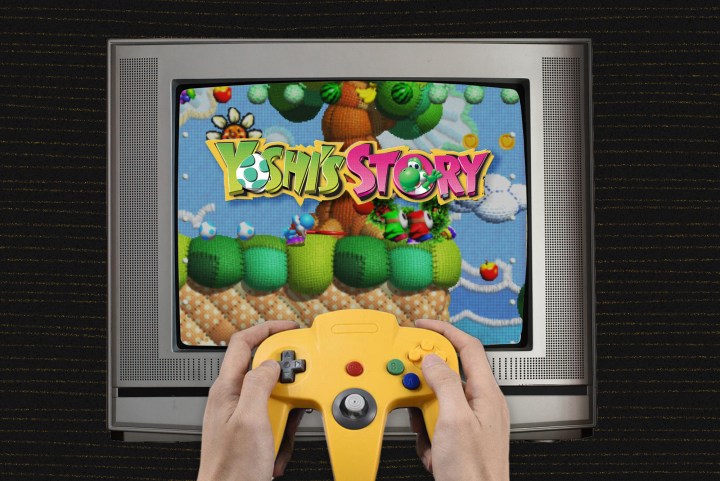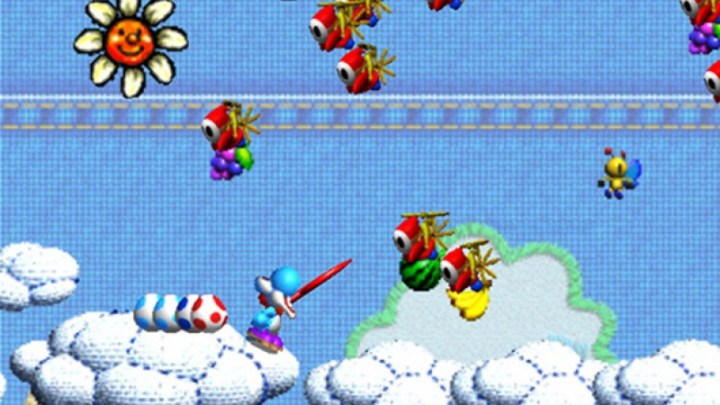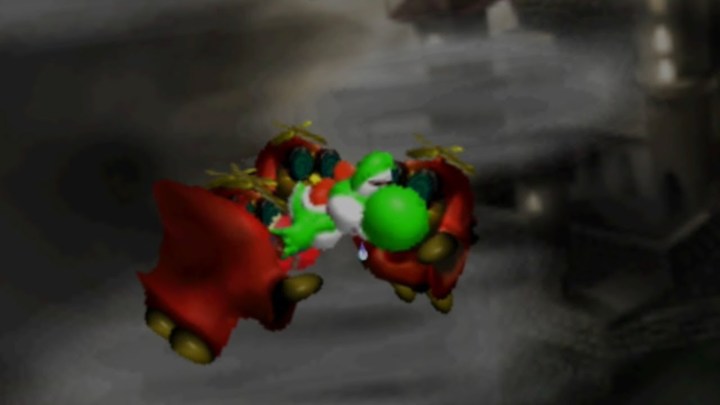
People always say that your first console is your most important one. I see why people say that, but I respectfully disagree. The first console I ever played was the NES, and I was about three or four years old. Like most children of that age, I was not particularly good at video games. The only thing I did was get killed by the same goomba over and over again in Super Mario Bros. 3, and I constantly lost to Starman in Pro Wrestling. Your first console doesn’t mean much if you are still learning your ABCs.
The console that matters most is the one where you first truly engage with video games as a medium. The one where you start to understand the systems, mechanics, and even the symbology you can find in gaming. What console were you on when you understood that a red barrel meant that it was an explosive? Were you playing a Gameboy when you discovered that an empty room with a save point meant a boss fight was behind the next door? The Nintendo 64 was that console for me. I may have started on the NES, but I cut my teeth on the Nintendo 64. The myriad of games that I played on that console shaped me into the kind of gamer that I am today. Thanks to a little game called Yoshi’s Story, I learned some of the most important lessons about consequences and the fear of death.

For the uninitiated, Yoshi’s Story is a side-scrolling platform game starring a plethora of Yoshis, all with their unique color. You travel the world to face off against Baby Bowser and his minions and try and reclaim the Super Happy Tree from his clutches. If you asked seven-year-old me, I would have told you that Yoshi’s Story is actually a horror game. The bright colors and happy songs could not hide the dark, unsettling truth from little me.
Yoshi’s Story handles lives in an interesting way. Technically, there are no lives. Every Yoshi has one life and once they run out of health, it’s game over for them. When you lose a life, instead of just disappearing off-screen, the music harshly cuts off and shifts to an uncomfortable twangy song. Your Yoshi is then completely surrounded by Fly Guys as they whisk it off to Baby Bowser’s castle. All you can do is watch your crying Yoshi as they fly away. The worst part is you can’t get them back. The only way to reclaim your Yoshis is by restarting the game.

This absolutely terrified me as a child. The horror of losing my Yoshi haunted me while I trotted along this cute and beautiful world. The worst part is that it would be entirely my fault if something did happen to my Yoshi. My actions can lead to the death of my Yoshi, and I wouldn’t be able to play them again until a complete Game Over. The consequences of my actions lay bare in front of me. If I don’t consider my choices or be careful enough, I would have to endure the loss of my Yoshi.
The lessons I learned from Yoshi’s Story stay with me to this day. Understanding the consequences of actions is vital for most games nowadays. Choosing what role I want to play in a MOBA, who I want to date in a dating sim, what platform I want to jump on, and everything in between all have consequences in-game. Risk is something gamers need to have a firm grasp on if they want to proceed further in their games and gaming career. For me, all it took was a couple of kidnapped Yoshis. So many actually. All my fault. I am so sorry. Please forgive me, Yoshis.
Editors' Recommendations
- Every rumored video game console: Nintendo Switch 2, PS5 Pro and more
- 10 significant video game anniversaries worth celebrating in 2024
- Video game adaptations are about to change the game in 2024
- The best third-party video game controller is about to get even better
- Charles Martinet’s 6 most iconic video game performances




